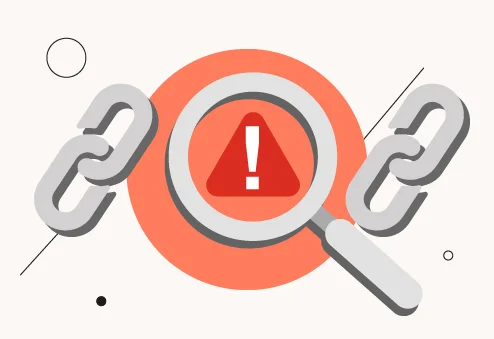SEO is a broad concept that can be somewhat complex. But it doesn’t have to be.
So, we decided to share an on page and off page SEO guide with you, which can help take your performance to the next level.
But first, let’s define both these SEO types and understand best practices.
So, let’s get started.
What is On Page SEO?
On page SEO refers to the optimization techniques applied directly to a webpage and its content to enhance their visibility and ranking in search engine results.
It involves strategies like:
- Optimizing your content,
- Building a strong keyword strategy,
- Creating effective internal linking,
- And much more!
When done correctly, on page SEO helps search engines easily index your pages and understand the content’s context.
To achieve the best results, it’s often a smart move to hire the best SEO expert who can analyze your website, identify gaps, and implement advanced optimization techniques.
On Page SEO Elements You Should Optimize
Now, let’s understand which on page SEO factors you should focus on and how to improve them.
- Keywords
Keywords really matter and help search engines understand what your page is about and match it with relevant searches.
So, you definitely need a strong keyword strategy to pick and use keywords your audience is searching for and stand out in the search results.
Here is how to do keyword research for SEO:
- Use keyword research tools to find the right terms:
Free options:
- Google Search Console – shows which keywords already bring users to your website and how your pages rank in Google results.
- Google Trends – tracks how interest in a keyword changes over time, making it useful for spotting seasonal or rising topics.
- Answer The Public – uncovers the most common questions and phrases people search around your topic, perfect for content ideas.
- Ubersuggest – generates related keyword suggestions along with search metrics, helping you target terms that are easier to rank for.
Paid options include tools like Ahrefs or SEMrush.
Here are the steps you take with Ahrefs for targeting the best keywords:
Step 1: Go to Keywords Explorer and enter your seed keyword.
Step 2: Review metrics like search volume, keyword difficulty, and traffic potential.

Step 3: Check the Terms match report to find related keyword ideas and variations.

Step 4: Look at the Questions tab to find question-based keywords people are asking.
Step 5: Use the Also rank for feature to see what other keywords top-ranking pages target.
Next, you can export your selected keywords and use them in your content strategy based on relevance, volume, and difficulty.
- Content
Compelling content is key to better visibility and stronger SEO results. Here’s how to make it work.
- Answer user questions – Create content that directly addresses what people are searching for and solves their problems.
- Follow Google’s E-E-A-T – When creating content, keep in mind Google’s E-E-A-T guideline (Experience, Expertise, Authoritativeness, and Trustworthiness), which focuses on generating helpful and authoritative content.
- Share expertise – Include insights, experiences, and examples that reflect your knowledge and authority on the topic.
- Provide unique value – Offer fresh perspectives, tips, or information that readers won’t find elsewhere.
- Be accurate – Verify facts, data, and sources to ensure your content is trustworthy and reliable.
- Help readers – Make your content easy to follow, actionable, and practical for real-world use.
- Use keywords naturally – Include relevant search terms in a way that flows naturally without stuffing or forcing them.
- Internal linking
Internal links help search engines discover your pages and show how your content connects. To make the most of them:
- For articles with 1,500–2,000 words, include at least 4-5 internal links to relevant pages.
- Use descriptive anchor text to clearly show what the linked page is about.
- Ensure that every page on your site has links pointing to it, so no content gets overlooked and orphaned.
- Meta titles
Meta titles tell search engines what your page is about and can influence both rankings and clicks.
Here are some tips we recommend when it comes to optimizing SEO titles:
- Keep meta titles between 50–60 characters.
- When users search for a particular keyword, seeing the search term at the start of a title makes it clear the content matches their query, increasing the chances they’ll click.
- Add your focus/primary keyword
- Make it catchy and engaging
- Avoid clickbait and misleading titles
- Headings
Headings structure your content for both users and search engines, making your page easier to scan and understand.
Here’s what we suggest to make your headings clear and useful.
- Your H1 should include your primary keyword.
- Create a logical hierarchy by using H1 for your main title, H2s for main sections, and H3s for subsections.
- Make headings descriptive and keep up to 70 characters.
- Image alt text
Alt text is a description you add to images in your website’s code that explains what the image is about.
Search engines also use alt text to understand your images and decide if they match what people are searching for.
Off Page SEO Strategies For Better Authority
Off page SEO involves actions taken outside your website to build its authority and reputation. The main goal of off page SEO is about improving your website’s reputation.
The core of off page SEO is link building – getting backlinks from other websites.
What backlinks can give you? They pass authority to your website, making it appear more trustworthy to search engines.
But how do you get backlinks? Reliable link building tools can help you:
- Find quality backlink opportunities
- Monitor your backlink profile
- Avoid spammy or low-quality websites
- Analyze competitors backlinks
- Find unlinked brand mentions
- Track lost or broken links and reclaim them
Besides link building, off page SEO includes other strategies to boost your website’s reputation and visibility:
- Brand mentions
When sites mention your company without linking, it still builds authority and brand recognition. Monitor these brand mentions and try to turn them into backlinks to boost your SEO efforts. Reaching out to site owners who mention your brand can often lead to quick backlink opportunities with minimal effort. These links help strengthen your domain authority and improve overall search visibility.
Be consistent and build your presence regularly for long-term SEO growth. Using SEO reporting tools can help you track these mentions and backlinks, showing which efforts are working and which need improvement.
On Page VS Off Page SEO: Key Differences
Although on page and off page SEO are both part of SEO, they are quite different. Let’s look at the details.
- Where you focus your efforts
On page SEO means working directly on your own website to improve your pages, while off page SEO involves activities outside your website to build reputation and get other sites to recognize and trust you.
- Control you have
With on page SEO, you have full control to change content, keywords, and site structure anytime with instant results.
However, off page SEO gives you limited control, as it depends on external factors. When building backlinks, different link builders may work in different ways. Some respond quickly, while others are slower, which can cause delays and make results harder to predict.
- Primary focus
On page SEO helps search engines and users understand your content while making your site easy to use and navigate. In contrast, off page SEO proves your website is trustworthy and popular by earning recommendations from other websites.
When combined, on page work ensures your website has high visibility, while off page work shows search engines that other people trust and recommend it, ultimately boosting your rankings.
On Page and Off Page SEO: Which One Should You Focus On?
What SEO tactics does your website need? Which one should you invest in when trying to get a better ranking for your website?
First thing you should know, Google considers both on page and off page SEO as ranking factors, meaning neither can be ignored.
Focusing on only one strategy will limit your results, so you need to use both on page and off page SEO together to attract more visitors and improve your rankings.
To Wrap up
Your website deserves better rankings, and you can achieve them with the right on page and off page SEO strategies.
We’ve shared practical tips and proven techniques to help you build a website that ranks well in search and attracts more visitors.
Start using these strategies today, monitor your results, and watch your website climb higher in search rankings.




